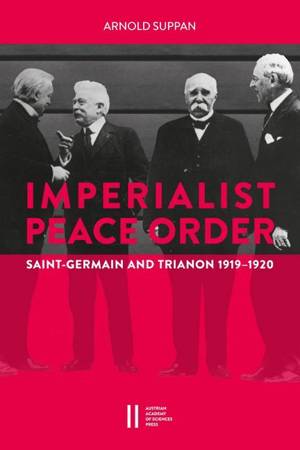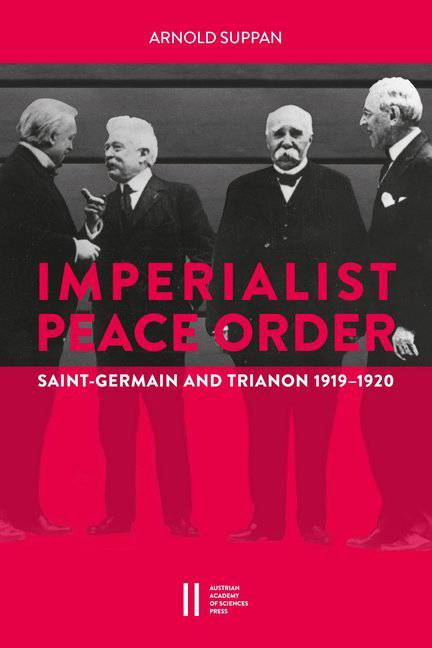
- Afhalen na 1 uur in een winkel met voorraad
- Gratis thuislevering in België vanaf € 30
- Ruim aanbod met 7 miljoen producten
- Afhalen na 1 uur in een winkel met voorraad
- Gratis thuislevering in België vanaf € 30
- Ruim aanbod met 7 miljoen producten
Zoeken
The Imperialist Peace Order in Central Europe
Saint-Germain and Trianon, 1919-1920
Austrian Academy of Sciences Press
Paperback | Engels
€ 53,45
+ 106 punten
Omschrijving
The peace treaties of Saint-Germain and Trianon sealed the disintegration of the Habsburg Monarchy into seven successor states under international law. Due to the ethnically mixed settlement structures of Austria-Hungary, the application of the right of self-determination led to multiple demarcation conflicts between the new nation-states. When the Allied Powers started the Paris Peace Conference in January 1919, the negotiations were influenced by the unsettled atmosphere in East Central Europe, which was suffering from an acute shortage of food and coal. Applying different political, strategic and economic principles, the peace treaties with Austria and Hungary were more vindictive than the one with Germany.
Specificaties
Betrokkenen
- Auteur(s):
- Uitgeverij:
Inhoud
- Aantal bladzijden:
- 250
- Taal:
- Engels
Eigenschappen
- Productcode (EAN):
- 9783700183631
- Verschijningsdatum:
- 27/09/2019
- Uitvoering:
- Paperback
- Formaat:
- Trade paperback (VS)
- Afmetingen:
- 151 mm x 226 mm
- Gewicht:
- 425 g

Alleen bij Standaard Boekhandel
+ 106 punten op je klantenkaart van Standaard Boekhandel
Beoordelingen
We publiceren alleen reviews die voldoen aan de voorwaarden voor reviews. Bekijk onze voorwaarden voor reviews.








